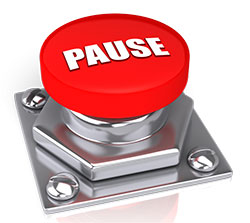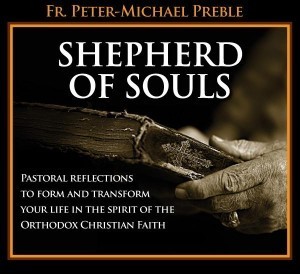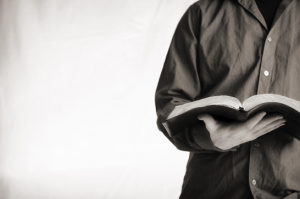
The last few weeks I have been writing a lot about action, make a plan, look in the mirror, and other such essays on how to get motivated to get things done. But, too much activity can be just as bad as not enough activity. We need to lean to pause every now and again to, as the old saying goes, “stop and smell the roses.”
But more important it the pause allows us to check to see that we are still one course. If we are moving full speed ahead the gentle course corrections become harder to make because it is not always obvious that we have drifted off course. The pause, or a time to slow down just a little, will allow us to see when these corrections need to me made.
In his book, The 15 Invaluable Laws of Growth, John Maxwell lays out the 4 benefits of the pause.
- Reflection Turns Experience into Insight
“Experience is the teacher of all things.” I have started to program of intentional reflection of my life and of my leadership direction. I am reflecting on the past to so I can dwell on the past but so I can see where I made mistakes, and also where I had success, and to learn from all of it. The past will not dictate our future, or at least it shouldn’t, but it can guide us as we move forward. Taking the time to reflect will take the experiences that we have had and give us some insight into our strengths and our weaknesses and guide us to making corrections. Every experience should be one that we learn from. Learning from the past will enable to grow into the future.
- Everyone Needs a Time and Place to Pause
This is a valuable lesson that we all need to learn. The church tradition I follow has built into the calendar several times during the year when we slow down. Two of the major ones come right before Christmas and right before Easter. These are intentional times on the calendar when the world is moving quickly but we are being asked to slow down and contemplate the season we are about to enter. This helps us refocus our attention spiritually, but an intentional time of pause, or a time away, can do amazing things for our life in general. I am not talking about vacation where we sometimes are busier than we are when we are home, this is an intentional time away, call it a retreat of you like, a time of rest and refreshment but also a little time for reflection. This can be done alone or with the team. It can be for a few hours or for a few days. I would suggest a place away from the distractions of work and that all outside communication is cut off so the focus can be totally on the task at hand.
On a personal note, I try to take time twice a year, although the last few years I have been lucky to be able to take one time, to go away to a monastery for a few days and power down. I spend the first day napping and walking and just relaxing and then the work begins. I take a book with me that I want to read and study, and spend the next few days relaxing and studying but also reflecting on where I have been and where I am going. These times have been very rewarding for me and I think if you take the time you will find them rewarding as well. You might say “I don’t have the time.” I say, “you have to make the time.”
- Pausing with Intention Expands and Enriches Thinking
This comes right out of the last one. All of the great thinkers of the world spent time alone. After a day of teaching and healing Jesus would go off by Himself to pray and to recharge in order to face what was coming the next day.
Several years ago I was granted a mini sabbatical from the church. I had just come off a very difficult situation in my life and I need to recharge and refocus and I knew there was no way that was going to happen while continuing the daily work of running the Church. I am grateful for the time away and for the fact that the lay leadership of the Church recognized the power associated with such a break. We do not always have the ability to take several weeks off to do what I did but we can make the time in small bites right in our own world.
Each of us needs to create a quiet place that we can go and be alone to think and, as I mentioned in the previous point, to slow down. Use this time to figure out what is really important and what is not. Henri Nouwen said, “When you are able to create a lonely place in the middle of your actions and concerns, your success and failures slowly can lose some of their power over you.”
Unlike the previous example where I suggested going away for a few days, this can a time of an hour or so or maybe a half day, that just be alone with yourself.
- When You Take Time to Pause, Use Your I’s
There are four I’s that will help us form a direction:
Investigation – We do not just stop and smell the roses but we stop and figure them out. What makes the rose smell so nice? How does this rose grow and what kind of soil is it in? Continual growth comes from asking questions about ourselves and our situation.
Incubation – I am not a great one for taking time to do things. I am a judgmental thinker where I want the decisions behind me so I can move on with the task at hand. I need to learn to slow down and really give thought to decisions and the outcomes prior to implementation. It has been said that we want slow cooker decisions not microwave decisions. There is one problem to watch for here, slow cooker decisions can often lead to procrastination so we have to be on guard for that.
Illumination – This comes when the slow cooker is on and the smells of what is cooking start to permeate the house. By allowing the idea to simmer we allow it to permeate our entire being and we are able to see if from all angles not just one or two. It becomes part of us and we let it dwell in us and in the end it is a much more satisfying result.
Illustration – If the foundation is not strong the rest of the structure will fail. This is as true in business and it is in our personal and spiritual life. The time we take in preparation is far more important than the time we will take to actually implement the plan.
This past summer the house I live in was painted. It is a rather large building; it includes not only my house but the parish hall and a small chapel, so it took some time for the painters to complete their work. I would guess that 75% of that time was spent in the preparation work of scraping, sanding, and cleaning up. After all of that work was done the painting began. But before a drop of paint touched the building the preparation work had to be complete. If this was done the paint would fail over a period of time. Spending time in preparation will have rewards that cannot be measured at the time but will become very certain in hindsight.
Slowing down and taking time to reflect is extremely important in all aspects of our lives. We move at 90 MPH each day and because we move that fast we tend to miss important details that may help us to find our destination. Take the time and slow down I think you will find the rewards worth the effort.









